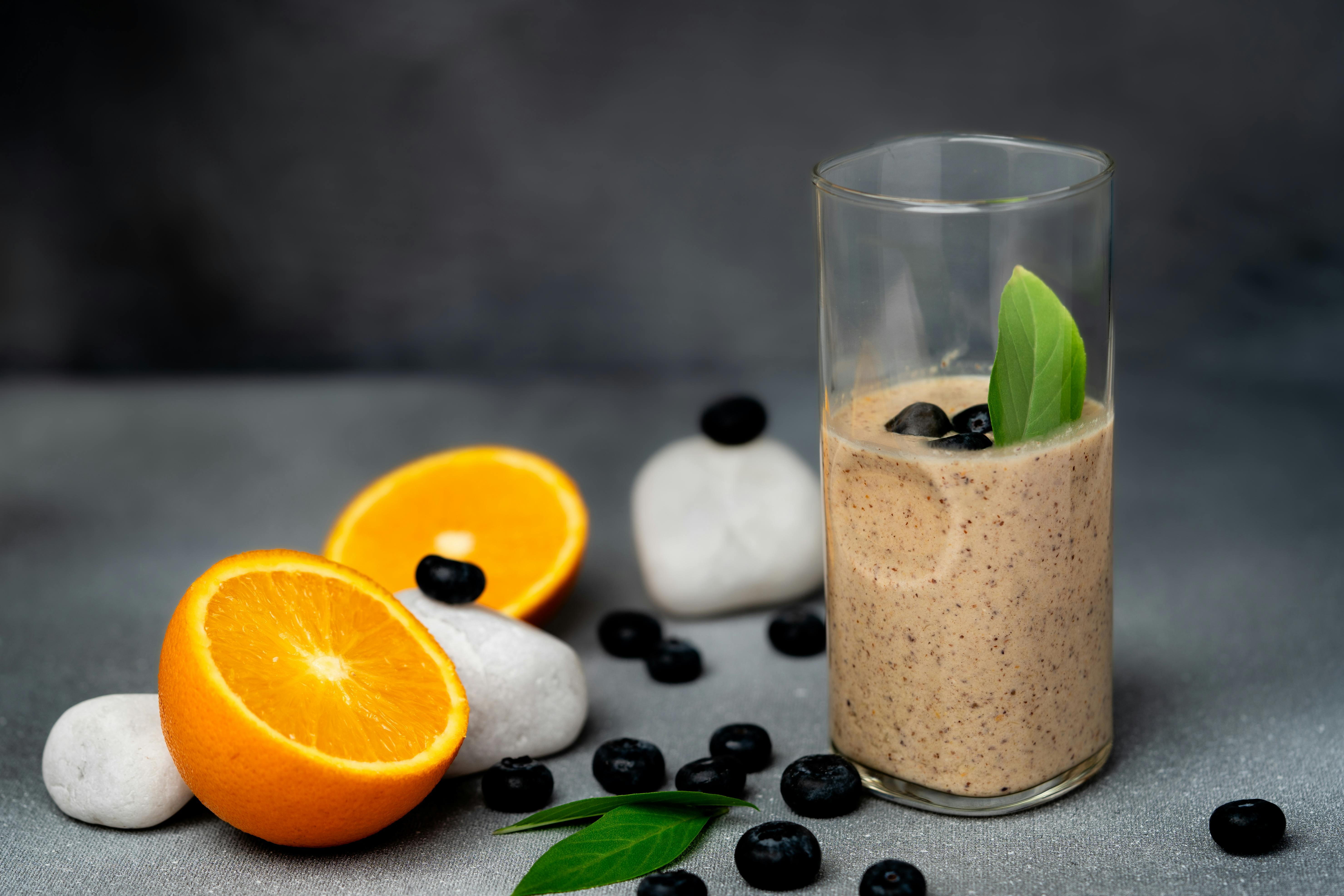Are you tired of relying on fast food for convenient meals, but find yourself wondering what you can eat instead? Say goodbye to the greasy burgers and hello to a world of healthier choices. In this article, we will explore a variety of nutritious alternatives that will not only satisfy your hunger but also contribute to your overall well-being. From flavorful salads packed with fresh veggies to homemade wraps bursting with flavorful ingredients, it’s time to bid farewell to fast food and embrace a healthier lifestyle.

1. Introducing healthier food options
1.1. Filling alternatives to fast food
When it comes to making healthier choices for your meals, there are plenty of filling alternatives to fast food that you can explore. While fast food is often convenient and satisfying in the moment, it tends to be high in calories, unhealthy fats, and sodium, which can negatively impact your overall health. However, fear not! There are numerous alternatives that are not only delicious but also provide the necessary nutrients your body needs to function optimally.
1.2. Delicious and nutritious options
Instead of relying on fast food options, consider incorporating a variety of delicious and nutritious alternatives into your diet. Think beyond the traditional burger and fries and explore options such as grilled chicken or fish paired with a side of brown rice and steamed vegetables. These options provide lean proteins, whole grains, and essential vitamins and minerals, which are all vital for maintaining a healthy body.
2. Embracing home-cooked meals
2.1. The benefits of cooking at home
One of the most effective ways to adopt healthier eating habits is by embracing home-cooked meals. When you cook your meals at home, you have complete control over the ingredients you use, allowing you to make healthier choices. Additionally, cooking at home can be a therapeutic and enjoyable activity, allowing you to connect with your food and experiment with different flavors and ingredients.
2.2. Easy and quick recipes for busy individuals
For busy individuals who often find themselves strapped for time, there are plenty of easy and quick recipes that can be prepared in a matter of minutes. From simple salads and stir-fries to sheet pan dinners and one-pot meals, the options are endless. By planning your meals ahead of time and utilizing time-saving techniques such as meal prepping, you can ensure that you have nutritious home-cooked meals ready to go, even during your busiest days.
3. Exploring local and organic options
3.1. Supporting local businesses
In addition to the health benefits, choosing local food options can also have a positive impact on your community. By supporting local farmers and businesses, you are contributing to the local economy and helping to sustain small-scale agriculture. Local produce is often fresher and more flavorful, as it doesn’t have to travel long distances to reach your plate. Visit farmers’ markets or join a community-supported agriculture (CSA) program to enjoy the abundance of local and seasonal foods.
3.2. The advantages of choosing organic foods
While organic foods can be more expensive than conventionally grown foods, there are several advantages to incorporating them into your diet. Organic farming practices prioritize soil health, biodiversity, and the avoidance of synthetic pesticides and fertilizers. This means that organic produce is free from potentially harmful chemicals, offering you peace of mind when it comes to your health. Additionally, organic farming methods often prioritize animal welfare, making organic meat and dairy products a better choice for those concerned about ethical farming practices.
4. Healthy snacks on-the-go
4.1. Preparing homemade snacks
When you’re craving a snack on-the-go, instead of reaching for a bag of chips or a candy bar, consider preparing your own healthy snacks. Homemade snacks allow you to control the ingredients and avoid unnecessary additives, preservatives, and excessive amounts of sugar or salt. Opt for options such as trail mix with nuts and dried fruits, homemade energy bars, or sliced veggies with hummus. These snacks provide a balance of protein, healthy fats, and fiber, helping to keep you satiated and energized throughout the day.
4.2. Smart choices for snacking between meals
Snacking between meals is a common occurrence, but it’s important to make smart choices when it comes to these mini-meals. Instead of opting for processed and sugary snacks, choose healthier alternatives that can help satisfy your cravings while fueling your body with nourishment. Some smart snack choices include Greek yogurt with berries, whole grain crackers with nut butter, or a piece of fruit paired with a handful of nuts. These options provide a combination of essential nutrients, aiding in maintaining steady energy levels and promoting overall well-being.

5. Opting for plant-based alternatives
5.1. The rise of plant-based diets
Plant-based diets have been gaining popularity in recent years due to their numerous health benefits and positive impact on the environment. A plant-based diet focuses on consuming primarily fruits, vegetables, legumes, whole grains, nuts, and seeds while minimizing or eliminating animal products. By opting for plant-based alternatives, you can reduce your intake of saturated fats and cholesterol, while increasing your intake of fiber, vitamins, minerals, and antioxidants.
5.2. Vegan and vegetarian options for fast food cravings
If you find yourself craving fast food favorites such as burgers, pizza, or tacos, there are now plenty of vegan and vegetarian options available that can satisfy those cravings. Many restaurants and fast-food chains have started introducing plant-based alternatives to their menus, such as veggie burgers, plant-based meat substitutes, and dairy-free cheeses. Additionally, there are numerous recipes available online that allow you to recreate your favorite fast food dishes using plant-based ingredients at home.
6. Nourishing your body with whole foods
6.1. The importance of whole, unprocessed foods
When it comes to nourishing your body, whole, unprocessed foods should be the foundation of your diet. Whole foods are minimally processed and retain their natural nutrients, fiber, and flavor. By opting for whole foods such as fruits, vegetables, whole grains, lean proteins, and healthy fats, you provide your body with a wide range of essential vitamins, minerals, antioxidants, and dietary fiber. These nutrients are crucial for maintaining optimal health, supporting immune function, and reducing the risk of chronic diseases.
6.2. Incorporating nutrient-rich ingredients in your diet
Incorporating nutrient-rich ingredients into your meals is a great way to enhance the nutritional value of your diet. Include foods such as leafy greens, berries, avocado, nuts and seeds, legumes, and fatty fish in your meals to ensure you are getting a diverse range of nutrients. Experiment with different herbs and spices to add flavor without relying on excessive amounts of salt or unhealthy condiments. By being mindful of the ingredients you use in your cooking, you can create meals that are both nourishing and delicious.

7. Meal prepping for success
7.1. Planning meals in advance
Meal prepping is a fantastic strategy to set yourself up for success when it comes to maintaining healthier eating habits. By planning your meals in advance, you can ensure that you have nutritious options readily available throughout the week, reducing the likelihood of reaching for unhealthy fast food choices. Set aside some time each week to plan your meals, create a shopping list, and prepare and portion your ingredients in advance. This way, you’ll have healthy meals within reach, even on your busiest days.
7.2. Maximizing convenience with pre-prepared meals
If you’re short on time or simply prefer not to spend too much time in the kitchen, pre-prepared meals can be a convenient option. Many grocery stores and meal delivery services offer pre-prepared meals that are designed to be healthy and balanced. Look for options that include a variety of vegetables, lean proteins, and whole grains to ensure you are getting a well-rounded meal. Alternatively, you can batch cook your meals during the weekends and portion them out for the week ahead for extra convenience.
8. Mindful eating habits
8.1. Listening to your body’s signals
Incorporating mindful eating habits into your daily routine can have a significant impact on your overall well-being. Mindful eating involves paying attention to your body’s hunger and fullness cues, eating slowly, and savoring each bite. By listening to your body and eating when you feel genuinely hungry, you can avoid unnecessary snacking or overeating. Additionally, mindful eating allows you to fully appreciate the flavors, textures, and aromas of your food, enhancing your overall dining experience.
8.2. Avoiding mindless snacking and emotional eating
Mindless snacking and emotional eating are common pitfalls that can derail your efforts towards healthier eating. Many people turn to food as a way to cope with stress, boredom, or other emotional triggers. By being aware of your emotional state and finding alternative coping mechanisms, such as going for a walk, practicing meditation, or engaging in a hobby, you can avoid turning to food for emotional comfort. Additionally, being mindful of your snacking habits and opting for nutritious options can prevent mindless overeating and unnecessary calorie intake.

9. Optimum hydration for a healthier lifestyle
9.1. The importance of staying hydrated
Staying hydrated is essential for maintaining a healthy body and lifestyle. Water plays a vital role in nearly every bodily function, including digestion, nutrient absorption, temperature regulation, and the elimination of waste products. Dehydration can lead to fatigue, headaches, dizziness, and decreased cognitive function. It is recommended to drink at least 8 cups (64 ounces) of water per day, but individual needs may vary based on factors such as activity level, climate, and personal health. Make hydration a priority by carrying a reusable water bottle with you at all times and setting reminders to drink water throughout the day.
9.2. Hydration tips and alternatives to sugary beverages
If you find plain water boring, there are plenty of hydrating alternatives to sugary beverages that can keep you refreshed and satisfied. Infuse your water with slices of fruits, cucumbers, or herbs for a hint of natural flavor. Herbal teas, both hot and iced, can be a refreshing and hydrating choice. Coconut water is another excellent option as it is naturally hydrating and contains electrolytes. Additionally, consuming water-rich foods such as watermelon, cucumbers, and leafy greens can contribute to your overall hydration.
10. Sustaining healthy habits for the long term
10.1. Building a supportive environment
Sustaining healthy habits for the long term requires creating a supportive environment that encourages your success. Surround yourself with like-minded individuals who share similar health goals, whether it be family members, friends, or members of a community group. Engage in activities together that promote healthy living, such as joining fitness classes, cooking healthy meals together, or exploring farmers’ markets. By having a support system, you can stay motivated and accountable, making it easier to maintain your newfound healthy habits.
10.2. Celebrating progress and maintaining motivation
Lastly, celebrating your progress and maintaining motivation are crucial for long-term success. Take the time to acknowledge and celebrate your achievements, no matter how small they may seem. Reward yourself with non-food-related treats, such as a massage, a new workout outfit, or a weekend getaway. Set realistic goals and track your progress to stay motivated. Remember that adopting a healthier lifestyle is a journey, and setbacks may occur along the way. Embrace those setbacks as learning opportunities and use them to fuel your motivation to continue moving forward towards a healthier, happier you.
In conclusion, by introducing healthier food options into your daily life, embracing home-cooked meals, exploring local and organic options, choosing smart snacks, opting for plant-based alternatives, nourishing your body with whole foods, meal prepping, practicing mindful eating, staying hydrated, and sustaining healthy habits, you can embark on a journey towards a healthier lifestyle. Remember, it’s not about perfection, but rather progress, consistency, and enjoying the process of nourishing your body and mind. Say goodbye to fast food and hello to a world of delicious, nutritious, and wholesome choices that will support your well-being for the long term.
